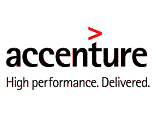U.S. consumer attitudes shift as many become open to intelligent technologies taking an active role in purchasing decisions
NEW YORK, 2017-Jun-06 — /EPR Retail News/ — Retailers and consumer goods companies could unlock $2.95 trillion in value for the industry and consumers over the next decade by accelerating digital transformation, according to a new report by…
